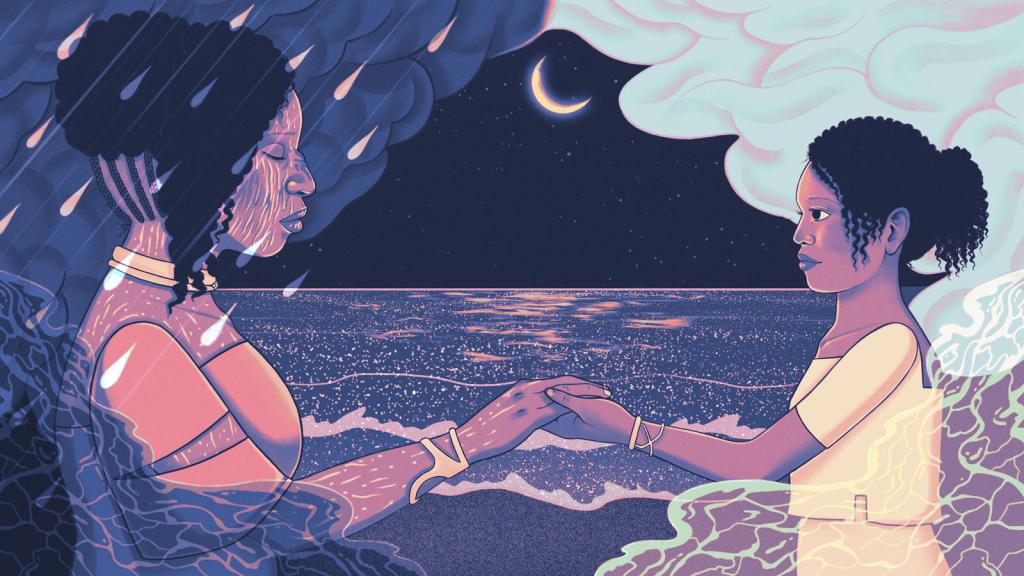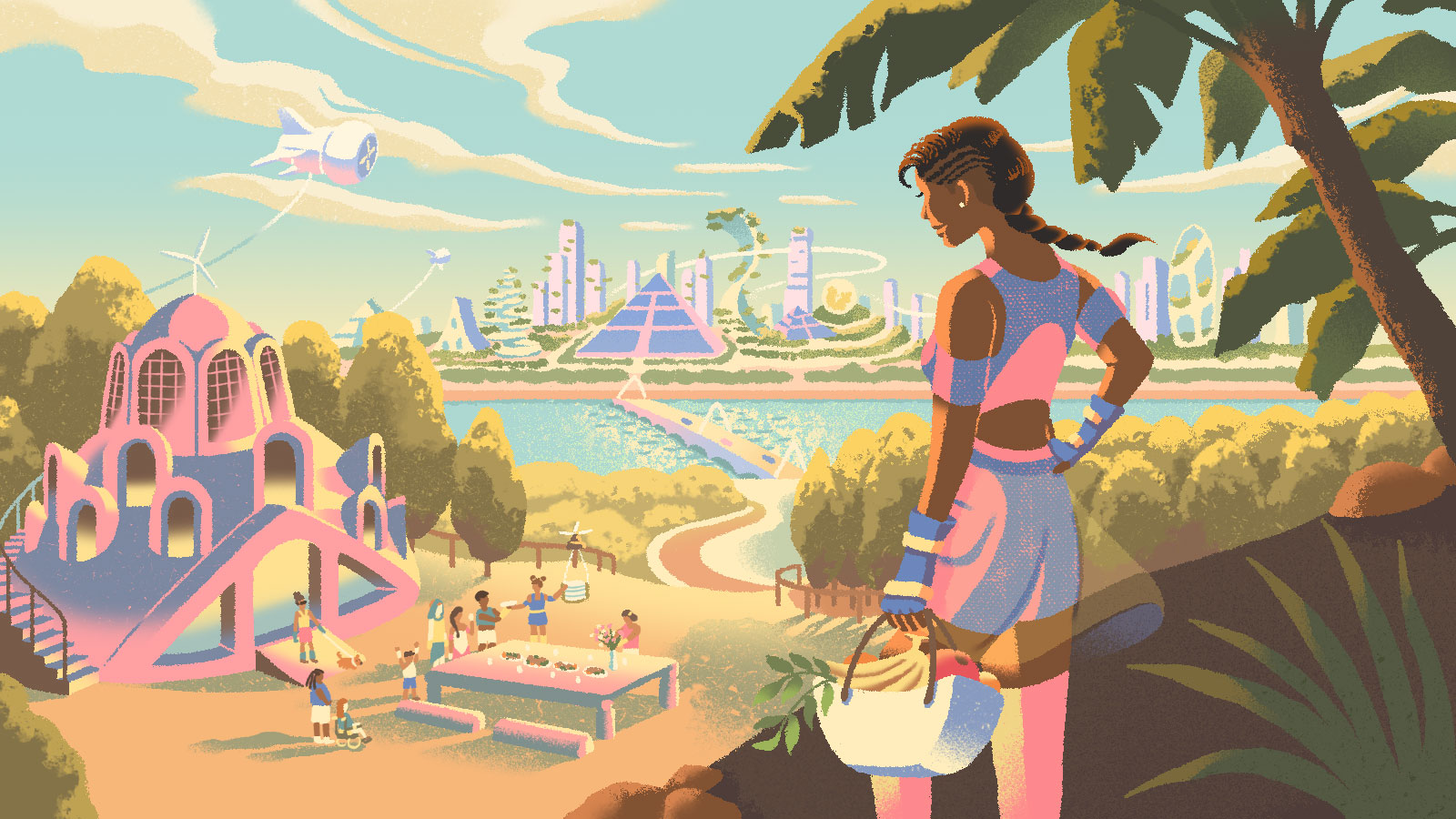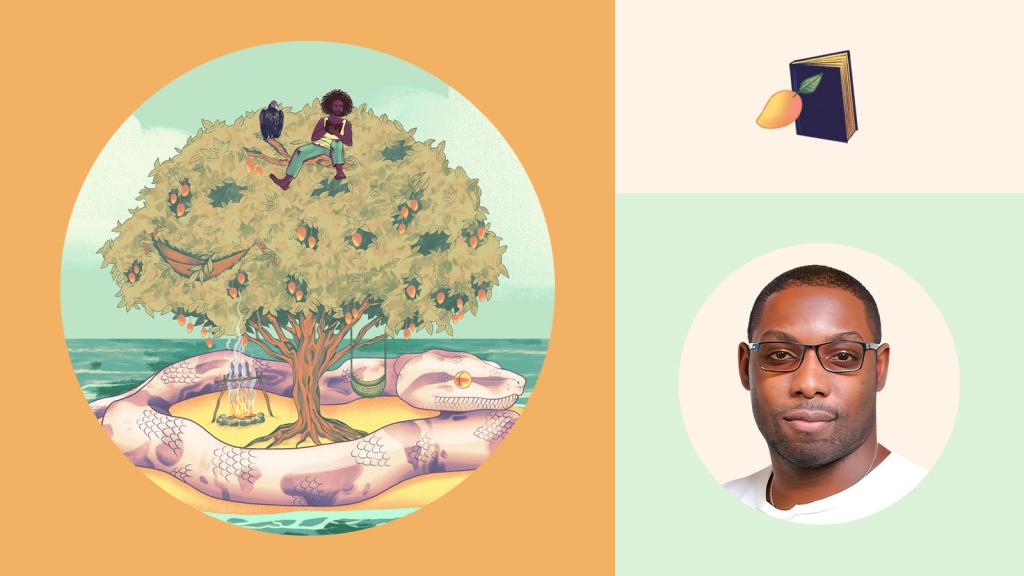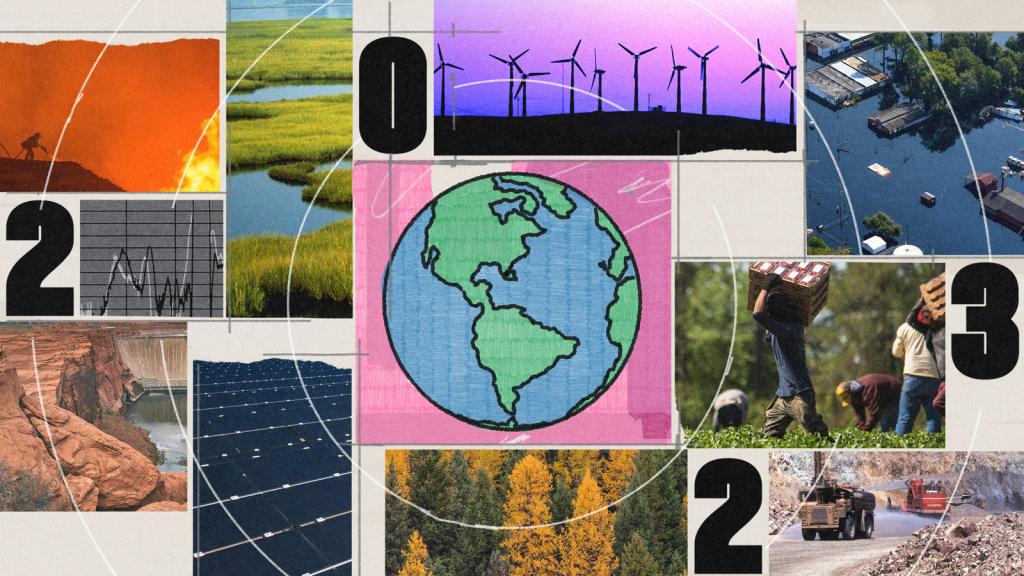Imagine 2200, Fix’s climate-fiction contest, recognizes stories that envision the next 180 years of equitable climate progress, imagining intersectional worlds of abundance, adaptation, reform, and hope. Read all 12 stories here.
Working on Fix’s climate fiction contest, Imagine 2200, over the past two years has changed and challenged me on a deeply personal level. Living in a world faced with deep divisions and terrifying climate disasters, I often found myself asking, “What is there to be hopeful about?”
I found the answers through my work with this initiative and immersing myself in the world of climate fiction. Imagine 2200 changed my perspective on what it means to be hopeful about the future, along with what it means to advocate for climate solutions and justice today.
To get there, I started where I always go when I’m confused and unsure about the world: to stories. I turned to the literary movements and people who have advocated for hope, justice, and solutions of all sorts, even during our darkest times: Afrofuturists, along with Indigenous, Latinx, Asian, disabled, feminist, and queer futurists, paired with hopepunks and solarpunks helped broaden my perspective about what is possible. These movements, and the stories and worlds they construct, often focus on intersectional characters, decolonization, and fighting against oppression. They create pockets of space for authors and creators to explore worlds free from whiteness.
Reading them, especially during these last two years, reminded me how powerful and transformative stories are in shaping our values and beliefs, and in determining what we mean when we seek out “hope.”
We need more art that encourages us to dream of the future we want and deserve. We need art that recognizes that a truly clean, green, just future is about more than slashing carbon emissions. We need to imagine worlds that have upended the status quo of colonialism, extraction, and oppression.
A few months ago I wrote this for Solarpunk Magazine, and it bears repeating.
“Right now a sizable chunk of us are addicted to the end of the world in every medium, from video games to what we’re streaming on our smart TV. Black Mirror; The Walking Dead; Love, Death and Robots; and Squid Game reign supreme. We’re collectively investing in dystopian futures with every stream, click, and view. We’ve monetized our peril.”
I was once told you are what you nurture. We are too often literally nurturing, investing in, and celebrating our own demise.
Imagine 2200 is interested in nurturing a world that uplifts us. Through multimedia storytelling, we aim to authentically represent people and cultures excluded from mainstream climate media, amplify their work, and ensure that everyone can see themselves in a better climate future.
This year, Imagine’s second, we recommit to those principles, and to the idea that stories carry in them the power to be part of building that better future.
This year’s stories emphasize collective dreaming and nurturing hope. They speak to food sovereignty, cooperation over competition, loving and caring for your elders, ecological restoration, and pursuing right relationships in all our natural, earthly systems.
We need more art that encourages us to dream of the future we want and deserve. We need to imagine worlds that have upended the status quo of colonialism, extraction, and oppression.
These are the types of stories I need to turn to when the pandemic is surging, or fascism is creeping in, or the climate crisis hits home. We need to use our imaginations to create depictions, dreams, and examples of the future we want. If we nurture our imagination in this way, and dial down the grimdark dystopia, we may find that there’s plenty to be hopeful about.
Reading the three winners and nine runners-up published in the 2022 Imagine collection, you’ll find fiction that imagines futures free from the clutches of colonialism. Stories that envision a world where people of all cultures can live in harmony with nature, rather than one in which people view themselves separate from nature and try to exert control over it. And explore futures free from the clutches of colonialism, rather than ones where people exert control over each other. This is how we decolonize our stories and imagination. This is how we discover hope when the world seems hopeless.
Choose hope. Choose justice. Choose and center frontline folk and their solutions. Because we are what we nurture.
Read the winning stories from Imagine 2200:



